Family history hunt ends on tiny island home to just seals and sheep
- Published
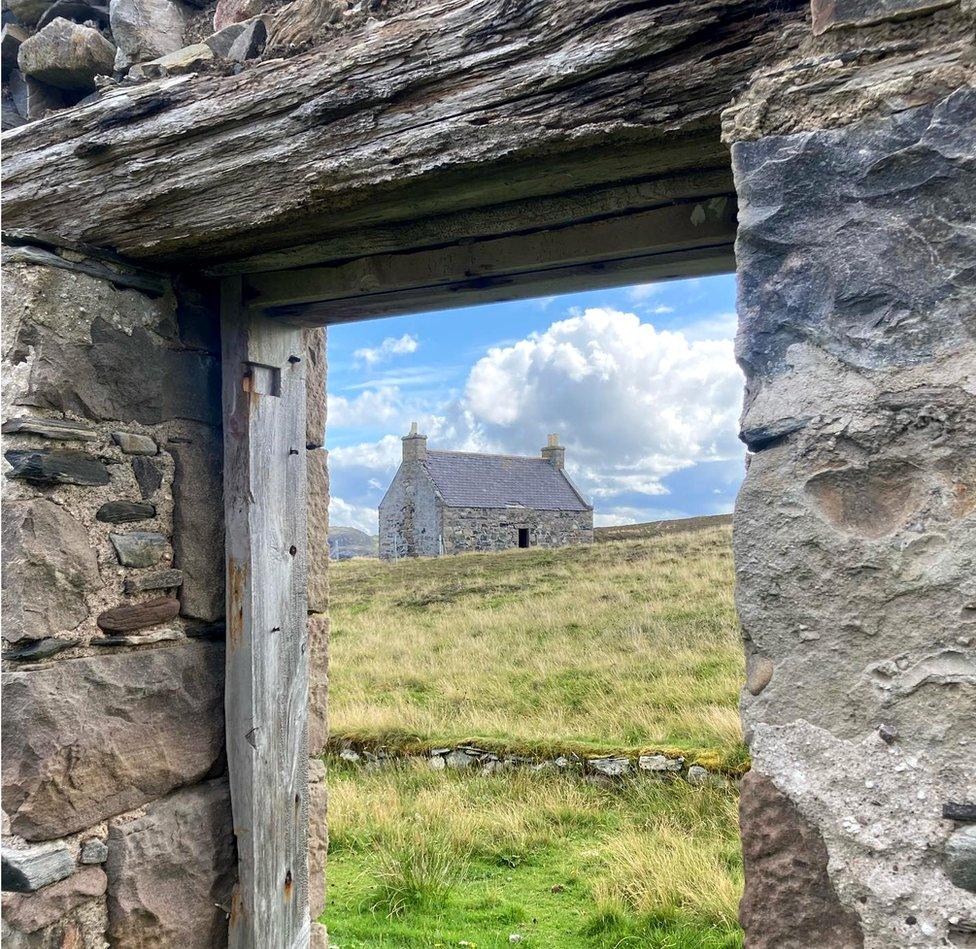
Eight stone houses are abandoned on the island
Today, the inhabitants of the remote Scottish island Eilean nan Ròn total a community of grey seals, a flock of wild sheep and thousands of seabirds.
The tiny island at the mouth of the Kyle of Tongue off the north coast of Scotland has been devoid of human life for decades.
But it was not always like that.
Its Gaelic name translates as "Island of the Seals" but for a brief period in time - the early 1800s until 1938 - the sea mammals weren't alone there.
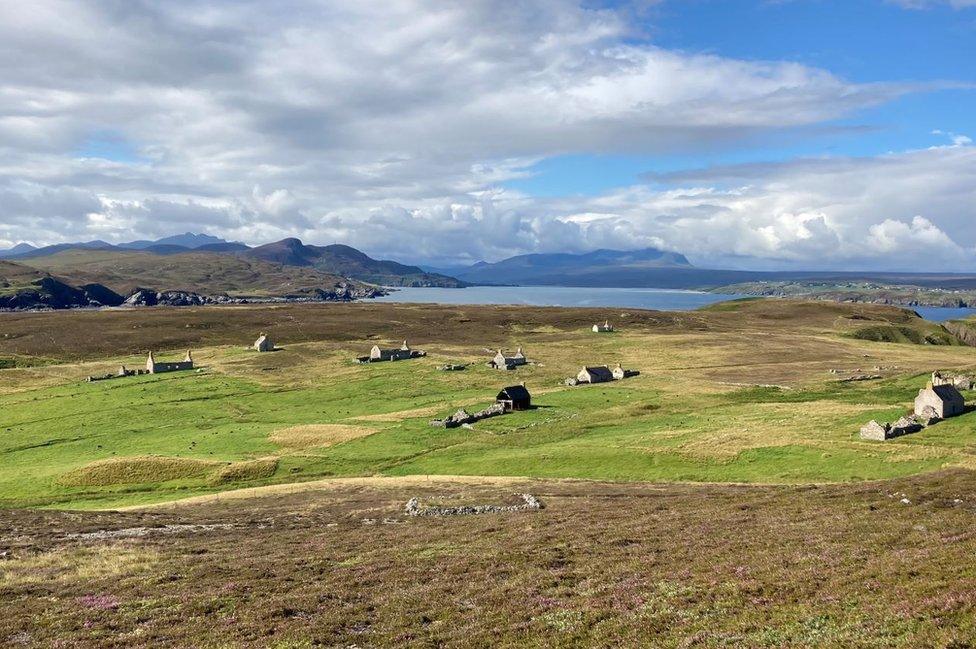
The last inhabitants left their houses in 1938
The island started as home to three crofting families, and at its population peak the community flourished to around 70 people.
Some of those people were the ancestors of composer, sound artist and flautist Rob Mackay.
In a new Radio 3 programme, Between the Ears: Island of the Seals, Rob traces his family roots amongst the ruins of the island's eight abandoned stone houses and their crofts, which still dot the dramatic landscape.
He arrives at the hard-to-access island by boat to spend 24 hours there.
"We are going to have to clamber over about 15ft of rock to get to the upper section." he said. "We'll get up the rocks first then we will haul our gear with some rope."
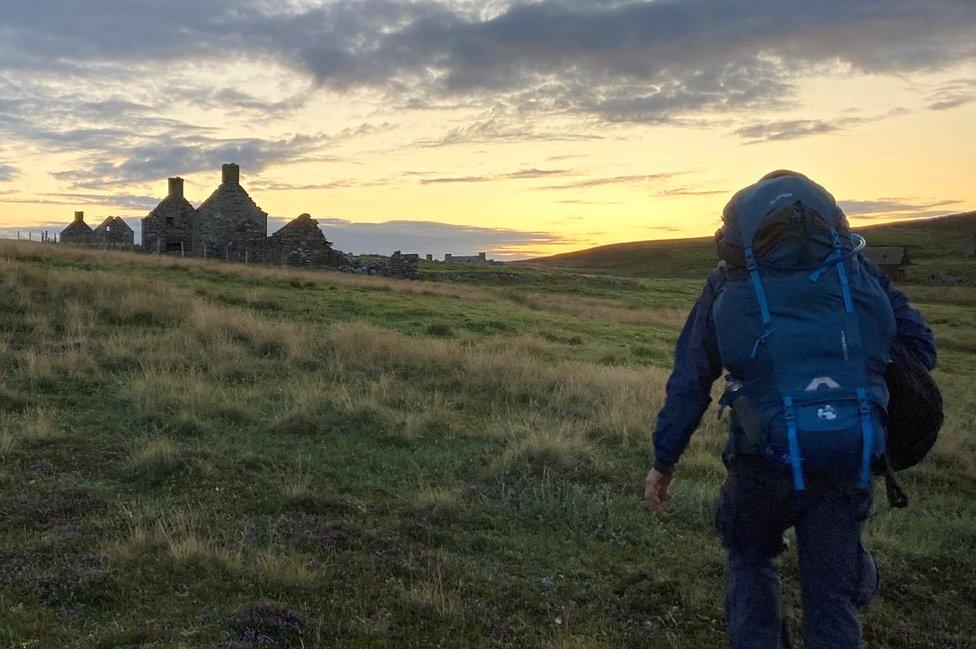
Rob Mackay returned to the island to trace his family history
Up in the hills in the heather he discovers a square where his ancestors would have cut peat for their fires.
Rob searches for a closer connection to his family members, hoping to understand their self-sustaining way of life, including fishing for herring, cooking over peat fires and making crowdie cheese.
He crosses the short stretch of North Atlantic water to wild-camp next to his grandfather's house, and uses recorded sound and his own flute playing to tune into the soul of the island's deserted village.
Rob's cousin, Lina Mackay, is with him, to help him cover the island's history and she explains the peat: "When the men cut it, it was like mud so it was all laid out on the heather. When it dried on that side you turned it over onto the other side until the wind came through and dried it all then it was ready to burn."
Rob's grandfather and great-grandfather lived on the island with their families.
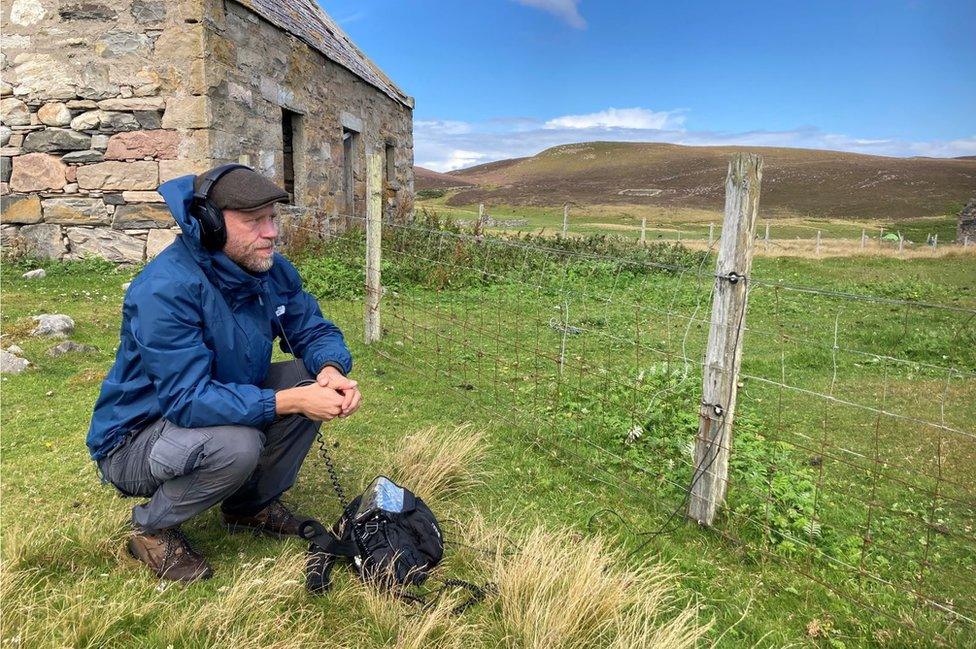
Rob wild-camped next to his grandfather's house on Eilean nan Ròn, recording the sounds of the island
"My great-grandfather was Donald Mackay and he had two boats," he said.
"One was the Morning Star, the other was called the Sunbeam and they fished out in the north sea."
Despite its population "boom" of the 1800s, people started to move away from the island.
The gradual relocation of Eilean nan Ròn's younger inhabitants back to the mainland left it human-free by 1938.
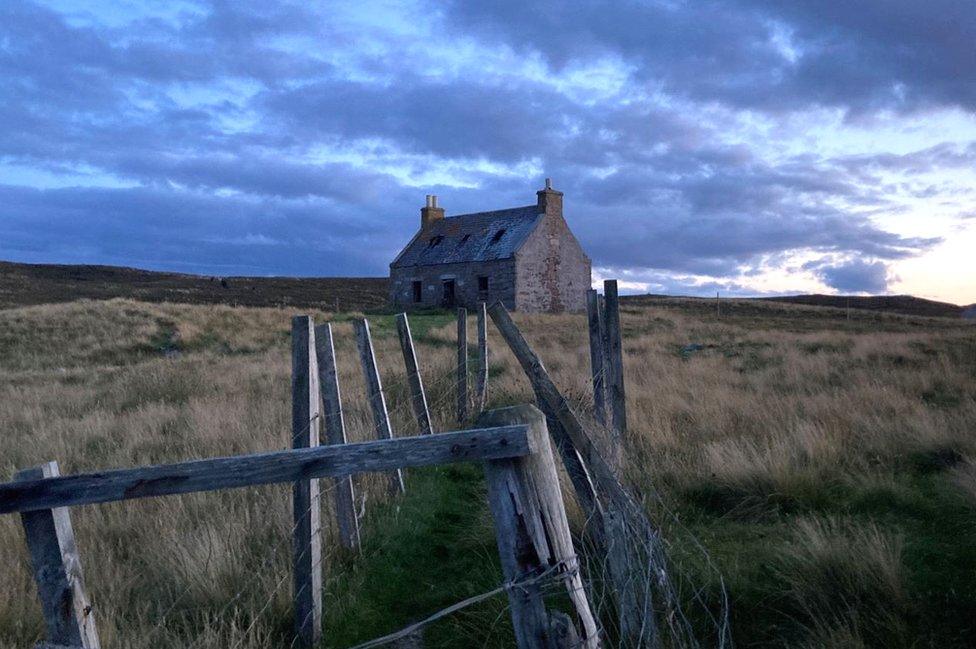
The house of Rob Mackay's grandfather has been uninhabited for decades
Since then, apart from a brief period of research into the common cold in the 1950s, it has sat empty, its small houses rotting away.
Documenter of oral history Katherine Van Voornveld talks about the pull of the Island of the Seals.
"Everybody who talks about the island talks about it as a really special place," she said.
"It just feels to me like it was a heartbeat away since folk were there. It is very very close so you can almost hear them.
"That sounds ridiculous but you can. Certainly when I was there, there were still curtains and things.
"Like, why did they leave that behind? But then they left always meaning to come back, so they left a lot of their things."
Forgotten sound
Rob combines poetry, music and the soundscape of the island to tell its story.
"Different people have different memories of the island and it's really interesting how those memories get passed down - oral history, written-down history, visual history, photographs and paintings and often sound gets left out.
"People don't think about it so much until it's gone and lost forever and so I am doing my best to preserve the way this island sounds right now and I can't help but imagine what it might have sounded like when it was inhabited."
Between the Ears: Island of the Seals is on Radio 3, Sunday 7 January 18:45 and afterwards on BBC Sounds